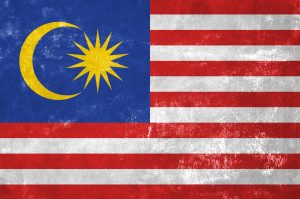Malaysia has agreed to relax laws on public protests, in particular the need to obtain prior permission for demonstrations, following a controversy over an anti-corruption protest last month.
Prime Minister Anwar Ibrahim told parliament yesterday that his government planned to remove Section 11 of the Peaceful Assembly Act (PAA) 2012, which requires protest organizers to seek permission from the owners of assembly sites before holding any gatherings.
Critics of the law say that the police often have used Section 11 as a means of preventing rallies from taking place, given the complexities of obtaining the necessary consent. But Anwar said yesterday that “no approval is required except for a five-day notification to the police,” Reuters reported. As for venues, “there will also be more flexibility unless the locations are considered security-sensitive,” he added.
Anwar said that the law will be amended during the next parliamentary session. Until then, the government will place a moratorium on the enforcement of Section 11 of the PAA, Home Minister Saifuddin Nasution Ismail told the press after Anwar’s announcement yesterday. “This means that no action will be taken on the organizers of any assembly until the amendments are approved,” he said, Free Malaysia Today reported.
However, Anwar said that rally organizers will still be required to notify the police five days before a protest gathering is held, to enable them to take the necessary steps to manage security and traffic.
As Channel News Asia explained, Anwar and his administration came under fire from civil society groups for imposing restrictions on an anti-corruption rally that was held on January 25. In the days leading up to the protest, Saifuddin told the organizers of the People Against Corruption rally to seek permission from the Kuala Lumpur City Hall and the owners of the Sogo shopping center, a popular gathering spot that marked the beginning of the planned protest march. He added that the streets outside the mall were not “public spaces.”
The protest ended up going ahead as planned – around 200 mostly young protesters attended – but more than 10 participants were summoned by police. Anwar told parliament yesterday that ongoing investigations, including into the People Against Corruption rally on January 25 and separate hunger strikes that activists launched this week to protest the government’s recent use of its controversial special detention law, would be halted. “The investigations have been dropped, and no further action will be taken,” Anwar said.
The investigations have been widely criticized in Malaysia. For critics, it was all the more galling for the fact that Anwar spent many years in opposition, during which time he was a vocal advocate of freedom of expression in general and the right to protest in particular.
In this sense it was just the latest example of the ways in which Anwar’s performance in office has clashed, sometimes discordantly, with his years in opposition. Civil society groups have accused the Malaysian leader of failing to fulfill promises to stamp out corruption and cancel laws, including the colonial-era Sedition Law, that restrict free speech and punish dissent. In some cases, it has used those very same laws to investigate activists and critics and to block news websites and blogs.
In this context, Anwar’s promise to remove Section 11 of the PAA was applauded by civil society groups. Kiran Kaur, Amnesty International Malaysia’s freedom of expression campaigner, said in an emailed statement that the amendment was “long overdue.”
The satirical artist Fahmi Reza, who has had his own share of brushes with the law, described it as a “victory for students and the people who are fighting for freedom of assembly and demonstration” in a post on X, according to the South China Morning Post.
“Well done to the new generation of student movements who dare to fight back!”

































